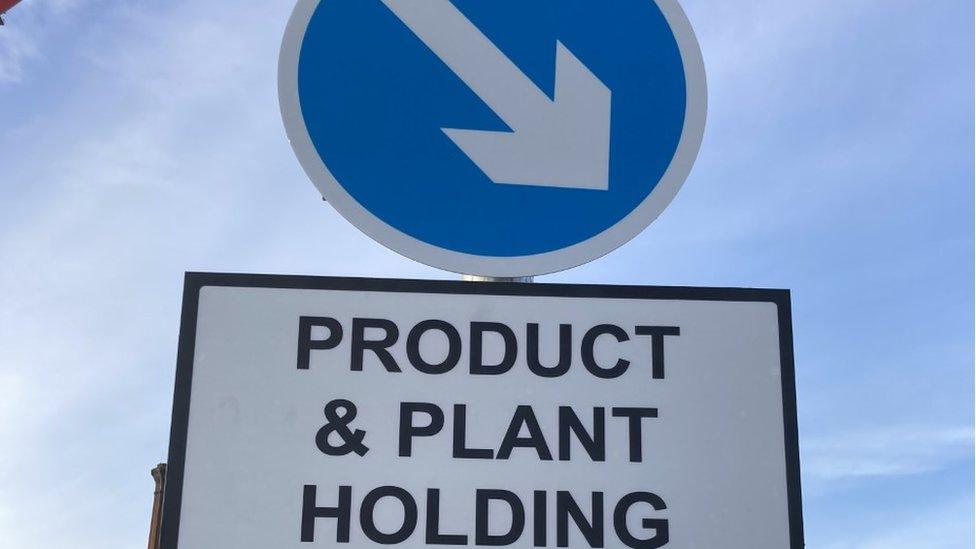Brexit: NI leaders at odds on Irish sea border meeting
- Published
- comments
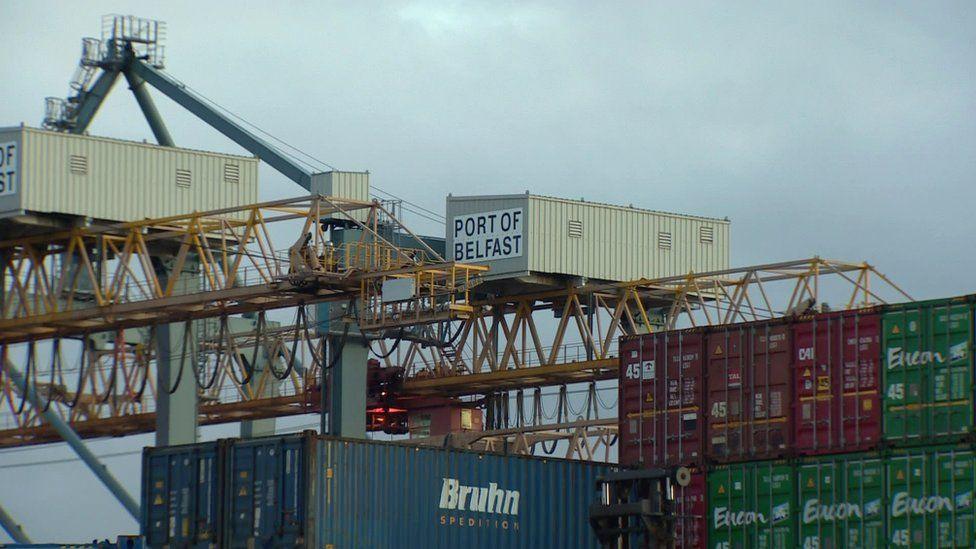
Northern Ireland has remained part of the EU's single market for goods and continues to enforce EU customs rules at its ports
A meeting of the EU-UK body overseeing the NI Brexit deal aimed at resolving issues with the Irish Sea border was "hugely disappointing", First Minister Arlene Foster has said.
But Deputy First Minister Michelle O'Neill said the meeting had been "constructive and pragmatic".
No breakthrough was reached on requests by the UK to extend grace periods.
The grace periods mean checks and controls on goods going from GB to NI are not yet fully implemented.
The first of the grace periods, which covers food and parcels, is due to end in April.
The UK government, with the support of business groups, has asked the EU for an extension until 2023.
DUP leader Mrs Foster, along with Sinn Féin vice-president Ms O'Neill, attended the joint committee, which is chaired by Cabinet Office Minister Michael Gove and European Commission Vice-President Maros Sefcovic.
Following the meeting, Mrs Foster told BBC Newsline she was not surprised that agreement had not been reached, and accused the EU of being "tone-deaf" to concerns of unionists.
She said the EU's solution was "more protocol, not less".
But speaking to the same programme, Ms O'Neill said the meeting had allowed both sides to focus on finding solutions, adding that another meeting of the committee would take place before the end of March.
Allow X content?
This article contains content provided by X. We ask for your permission before anything is loaded, as they may be using cookies and other technologies. You may want to read X’s cookie policy, external and privacy policy, external before accepting. To view this content choose ‘accept and continue’.
In a joint statement, Mr Sefcovic and Mr Gove said they "reiterated their full commitment to the Good Friday (Belfast) Agreement in all its dimensions" and "to the proper implementation of the Protocol".
It continued that the UK "noted that it would provide a new operational plan with respect to supermarkets and their suppliers, alongside additional investment in digital solutions for traders in accordance with the Protocol".

Analysis: 'Door is not closed'
The Joint Committee meeting has not delivered the extension to the grace periods that NI businesses would like.
But a careful reading of the statement released by the EU and UK suggest that door is not closed.
It refers to a 'new operational plan' for supermarkets and their suppliers which is understood to be a grace period by another name.
But further discussions on phasing and choreography will be required before anything is confirmed.

Both parties agreed to hold a further joint committee and to engage "with business groups and other stakeholders in Northern Ireland".
What are the grace periods?
Northern Ireland has remained part of the EU's single market for goods and continues to enforce EU customs rules at its ports.
That means EU import rules have applied to goods entering Northern Ireland from Great Britain since 1 January.
However, the grace periods mean that all the EU's procedures do not yet apply.
Some food businesses, particularly major retailers, do not need to comply with all the EU's usual certification requirements.
Additionally, parcels carrying goods valued at £135 or below do not need customs declarations.
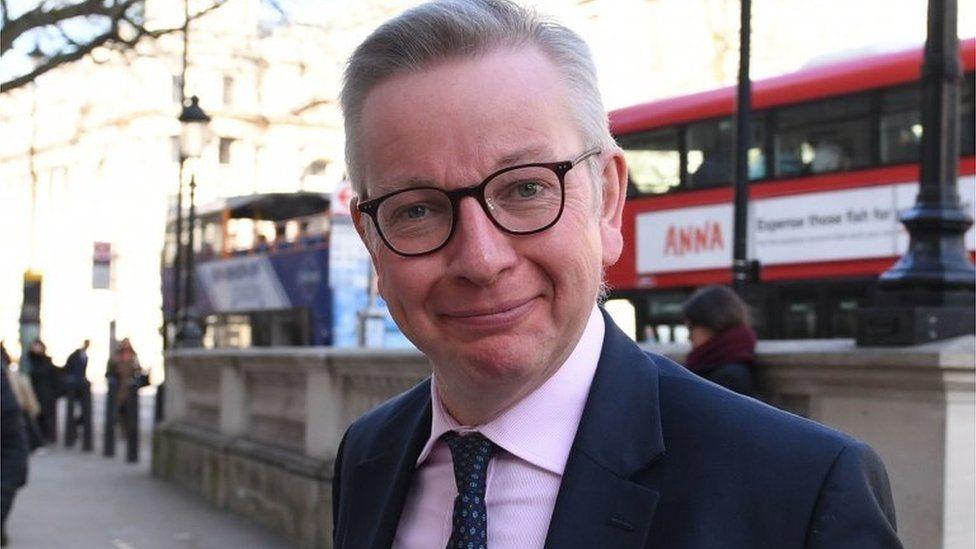
Michael Gove wrote to the EU asking for longer grace periods
In the aftermath of the Article 16 controversy, Mr Gove wrote to the EU asking for longer grace periods.
He also asked the EU to examine its decision to ban the importation into Northern Ireland of some items like seed potatoes and to ease the rules for pets being taken across the Irish Sea.
In response, the EU did not rule out longer grace periods but it is unlikely to agree to the long extension requested by Mr Gove.
On Monday, Irish Foreign Minister Simon Coveney said the EU was prepared to be "flexible" and "generous" in easing the effect on Northern Ireland businesses but the UK had to follow through on its commitments to the EU last December.
These included a promise to give EU observers real-time access to UK customs data and to provide data on goods moving from Northern Ireland to Great Britain.
Mr Coveney said there could be easier trade between Great Britain and Northern Ireland under the Northern Ireland Protocol if the UK agreed to align more closely to EU food safety and animal and plant health standards.
New system for delivery problems
On Wednesday, MLAs were told how customs officials were working on a new IT system to deal with express delivery problems across the Irish Sea border.
Details were outlined to Stormont's Economy Committee by Seamus Leheny from the freight trade body Logistics UK.
He said it was hoped it would make it easier for express carriers to get their parcels from Great Britain to Northern Ireland but he added that it would not be ready until later this year.
Related topics
- Published2 February 2024

- Published27 January 2021
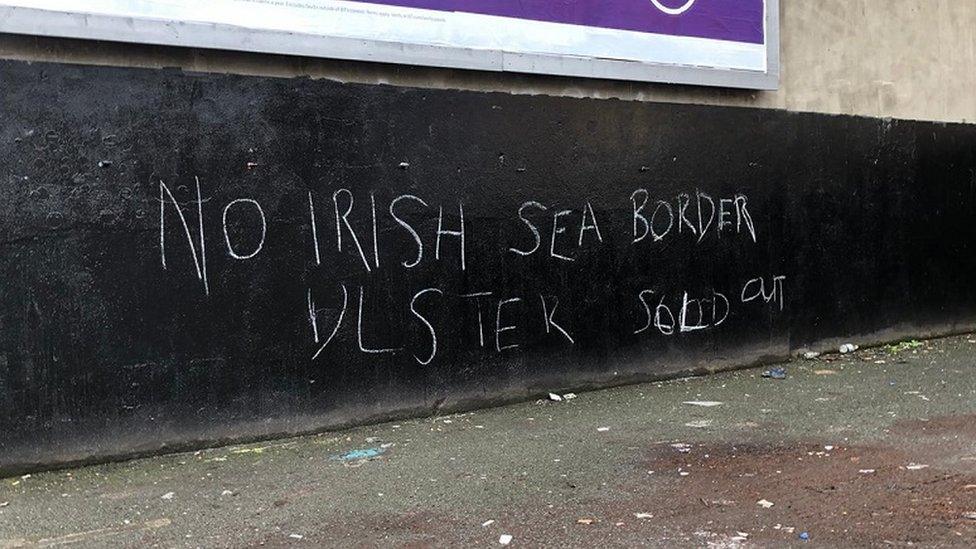
- Published6 January 2021
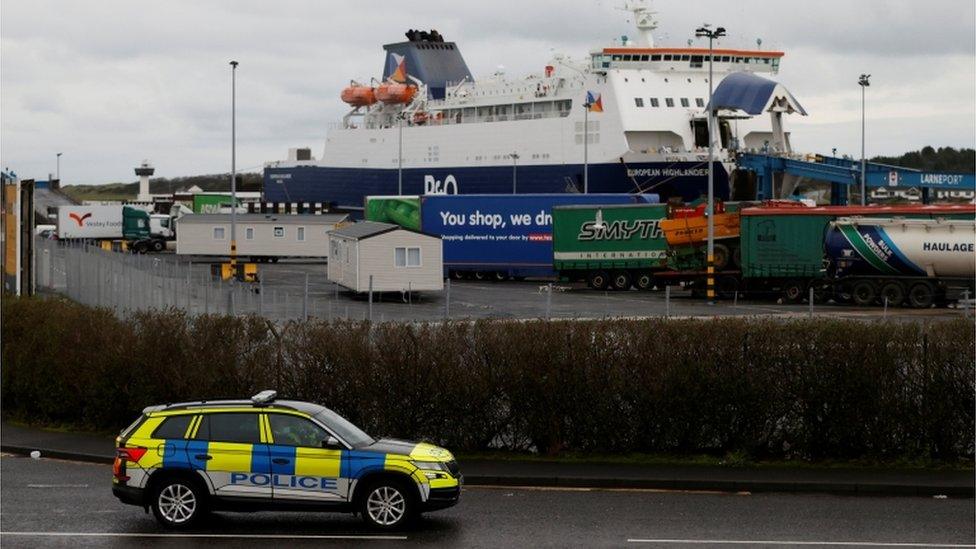
- Published23 December 2020
